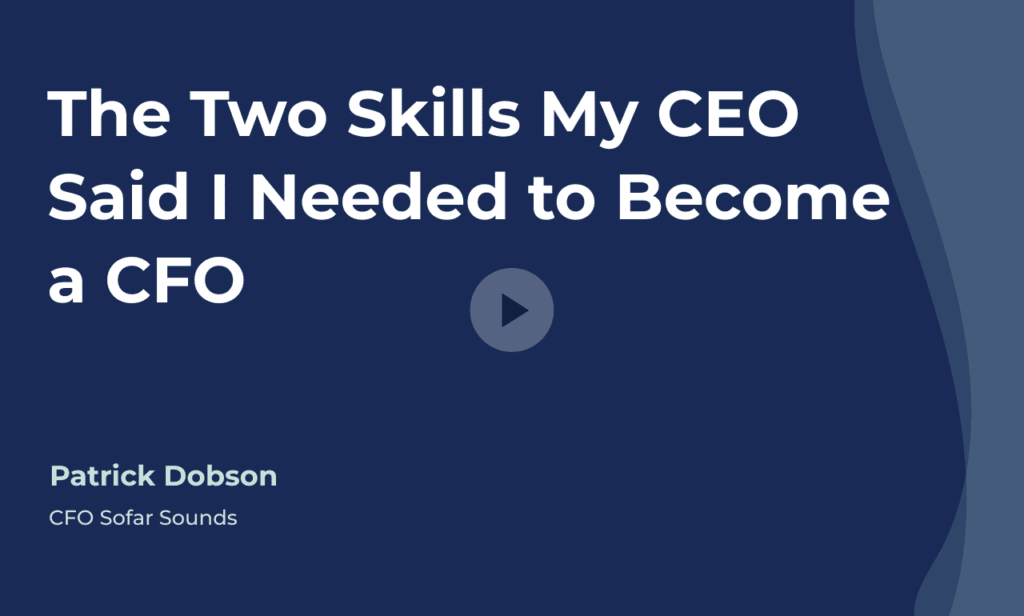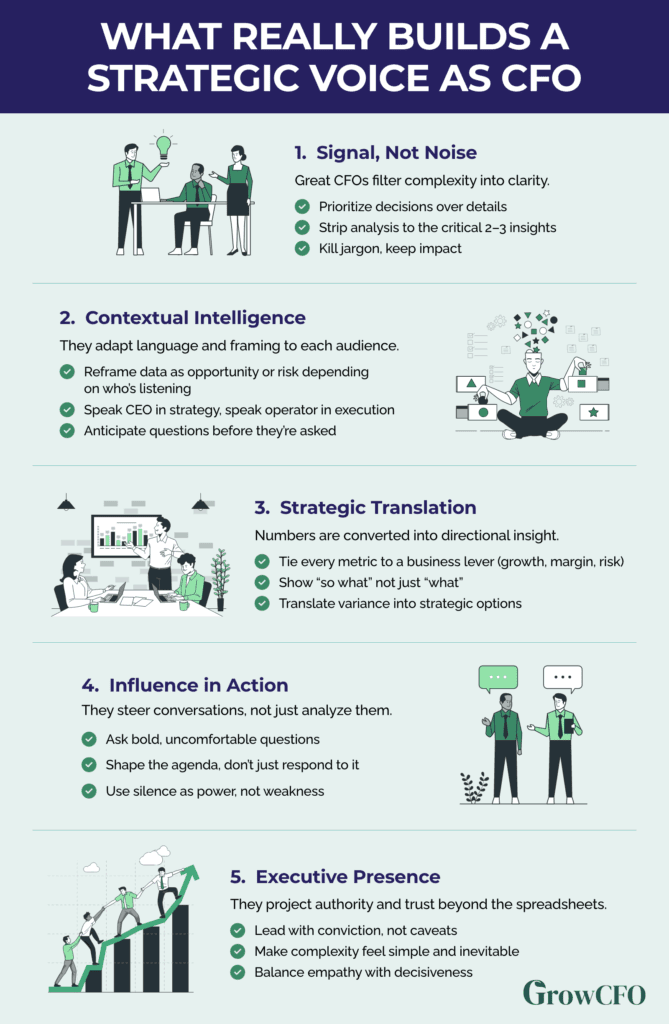Why Technical Skills Won’t Make You CFO (and What Actually Will)

Every week, I speak with finance leaders who tell me the same thing:
“If I can just master the technical side, I’ll be ready for CFO.”
They’re wrong.
Every finance leader can run the numbers.
Every CFO can prepare a forecast.
But not every CFO can influence the board, shape strategy, and make their voice heard.
That’s the real differentiator.
👉 These are the skills that separate finance managers from future CFOs — and they’re what we teach inside the Future CFO Program.
Find out how the program works at the Future CFO Preview Event on 23rd October.
Reserve your free seat here
🎥 The Two Skills My CEO Said I Needed to Become CFO
Patrick Dobson, CFO at Sofar Sounds, shared a story that captures this shift perfectly.
When a new CEO joined after their Series C raise, Patrick asked:
“What do I need to do, in your eyes, to truly be your CFO?”
The CEO’s answer surprised him.
“I want to be completely relaxed if you take my place on an investor call.”
“And I want you to fully own your sections of the board meeting — with almost no help from me.”
Two milestones.
Both about communication, not accounting.
That’s the moment it clicks for most future CFOs:
Boards and CEOs assume you can handle the numbers.
What they really want is a CFO who can lead the conversation.

What Boards, CEOs, and Investors Actually Want
After hundreds of conversations with finance leaders, the same four traits keep coming up:
✓ Clear, confident communication — no jargon, no data dumps.
✓ Strategic perspective — translating numbers into direction.
✓ Influence and presence — being the trusted partner at the table.
✓ Courage to challenge assumptions — respectfully, but decisively.
Your technical ability gets you in the room.
Your strategic voice keeps you there.
How to Strengthen Your Strategic Voice
Here’s what I’ve learned (and teach) about turning data into influence:
1. Simplify the message.
Your CEO doesn’t want a 30-page pack — they want clarity.
Cut the noise. Speak in outcomes.
2. Read the room.
The way you communicate with investors shouldn’t mirror how you talk to operators.
Tailor your message to the listener.
3. Link finance to strategy.
Every number should connect to growth, risk, or opportunity.
If it doesn’t, it’s just data.
4. Practice influence daily.
Influence is a muscle. Challenge assumptions respectfully.
Offer solutions, not just red flags.
5. Build presence.
Confidence isn’t loud. It’s calm, credible, and consistent.
People follow leaders who project stability, not spreadsheets.

My Opinion — What Makes the Real Difference
In my experience, the best CFOs aren’t defined by how well they report.
They’re defined by how they communicate, coach, and connect.
They don’t speak more often — they speak more intentionally.
They don’t have all the answers — they ask better questions.
And they don’t wait for permission to lead — they create moments to add value.
That’s what the Future CFO Program is built around: helping finance leaders step up as strategic voices, not just technical experts.
👉 If you want to see how the program works, join the Future CFO Preview Event on 23rd October.
[Reserve your free seat here
The Bottom Line
When you master communication and influence, you stop being “the numbers person.”
You become the person driving the business forward.
Your CEO, your board, and your investors are already expecting this shift.
Don’t wait until you’re overlooked for it — start building it now.
📅 The Future CFO Preview Event on 23rd October gives you a behind-the-scenes look at the 9-module program that helps you make that transition.

P.S. The best finance leaders I know realised too late that technical skills were the easy part.
The real challenge — and opportunity — is communication.
Don’t miss your chance to build it.





Responses